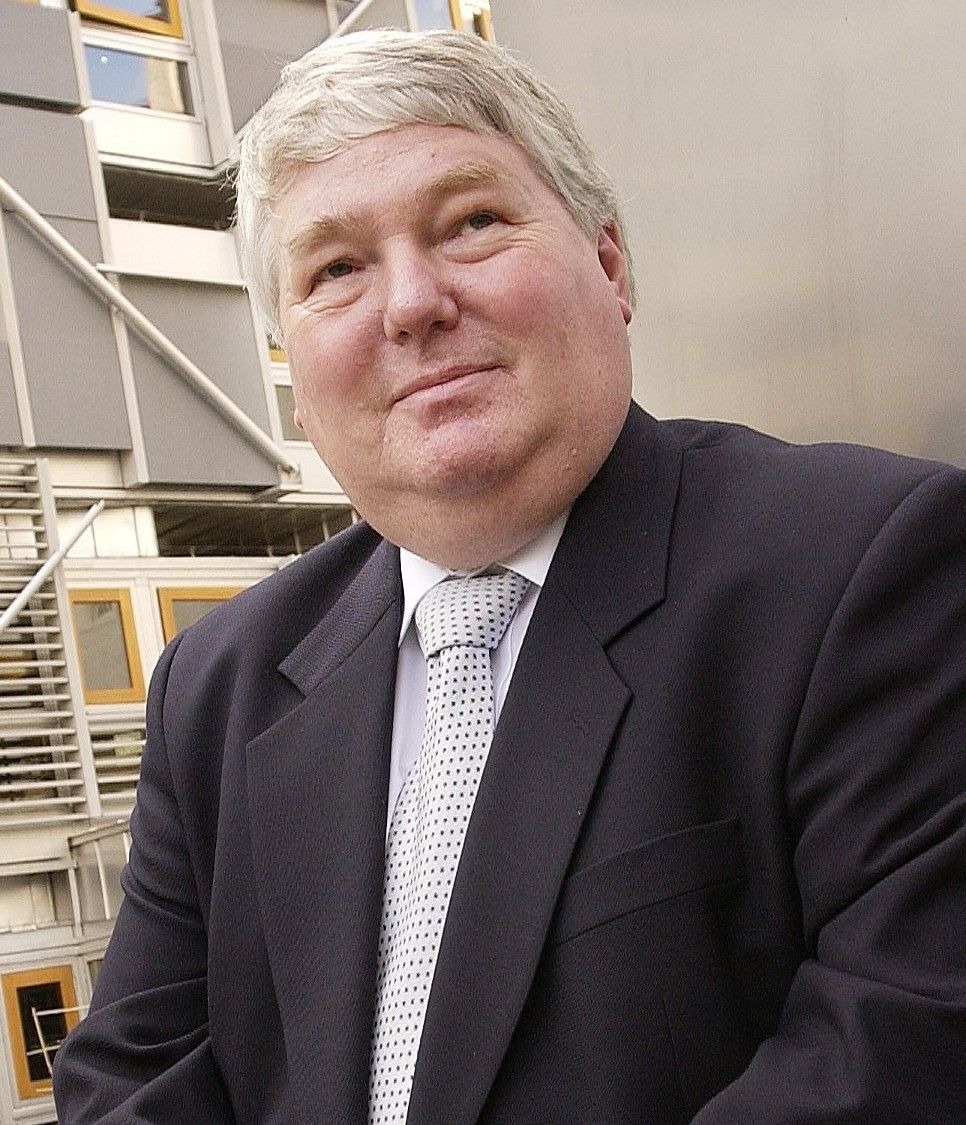2014
Our President in 2014/5 was:
Brian Taylor
He gave the Toast to Sir Walter at our 106th Annual Dinner on 5th March 2015 in the New Club, Edinburgh.
Summary of the Speech:
Brian Taylor’s Presidential Address was witty, warm, and intellectually engaging. He reflected on Scott’s legacy, his undervalued status in modern Scotland, and the contrast between how Scott and Robert Burns are perceived. The speech used humour, personal anecdotes, and cultural insight to defend Scott’s standing as a writer of genius and a cornerstone of Scottish identity.
Key Themes & Highlights
1. Self-deprecating humour and personal reflection:
Taylor opened with humility, recognising the legacy of previous Presidents and his own amateur standing. He referenced his early forays into poetry, his career in journalism, and a key moment when his wife persuaded him to become a writer of facts rather than verse.
2. Influence of schoolteachers:
A tribute was paid to an English teacher, Bob File, who introduced him to Scott’s
Waverley novels, sparking a lifelong admiration.
3. Scott vs. Burns – a mythic imbalance:
Taylor explored the way Burns is popularly viewed as the “true Scot,” earthy and authentic, while Scott is often seen as elitist and out of touch. He argued this is a product of mythmaking and identity politics in 20th-century Scotland.
4. Scott’s social breadth and artistic range:
He reminded the audience of Scott’s extraordinary popularity in his own time, his ability to depict all levels of society, and his combination of romantic imagination with realism. John Buchan’s view that Scott punctures romance with grounded voices was approvingly quoted.
5. The ‘Heaven-taught Ploughman’ myth:
Taylor argued that the image of Burns as a spontaneous, uneducated genius is false and dangerous. It romanticises ignorance and underestimates Burns’ erudition. In contrast, Scott’s scholarly and legal background was used against him in Scottish popular culture.
6. The Caledonian Anti-Syzygy and Scottish identity:
Drawing on Hugh MacDiarmid, Taylor discussed the duality in Scottish character—a prideful bluster covering a deep insecurity (the “Caledonian cringe”). He proposed that this insecurity contributed to the cultural sidelining of Scott, in favour of a more rugged, down-to-earth archetype.
7. Changing attitudes:
Taylor argued that Scotland has outgrown this restrictive identity. Modern Scots are more relaxed, humorous, and culturally open. The popularity of ceilidhs, kilts, and conga-dancing football fans (the Tartan Army) speaks to a more confident national identity.
8. Reclaiming Scott:
The speech concluded with a call to rescue Sir Walter Scott from cultural neglect. Taylor warned against viewing him only as a historical curiosity or dusty antiquarian. Instead, Scott should be appreciated as a major global writer whose genius, moral decency, and creative vitality still shine today.
9. Poetic ending:
Taylor quoted Lockhart’s moving description of Scott’s death—surrounded by family and the sound of the Tweed—and raised a toast “to the enduring memory of Sir Walter Scott.
Notable Points
- The “Heaven-taught Ploughman” myth was revealed as a form of national self-sabotage—glorifying ignorance at the expense of education and intellect.
- Scott was defended as both deeply rooted in Scottish culture and intellectually vast—qualities wrongly seen as incompatible.
- The speech shows how public memory is shaped as much by image and identity as by literary merit.
- The phrase “rescue Scott from the sunless dungeons of the mind” was a powerful metaphor for cultural revival.

You may also like:
Brian Taylor: [The Heart of Mid-Lothian] (Chapter 8) - Jeanie visits her sister in prison
Brian Taylor is BBC Scotland's Political Editor.
Brian joined the BBC in 1985. After a spell co-presenting the political programme Left, Right and Centre, he was appointed Political Correspondent and then Political Editor.
In that role he covers Scottish politics for all outlets, including BBC Scotland and UK network programmes.
His weekly Big Debate on Radio Scotland has become an audience favourite. In addition, he has presented Good Morning Scotland and is a regular contributor to other BBC programmes.
Before joining the BBC, Brian worked in newspapers for eight years including six years as a lobby correspondent at Westminster.
Brian has written two books on Scotland's new Parliament and co-written eight more. Among other things, he is the author of The Scottish Parliament (Polygon, Edinburgh University Press, 1999): a definitive account of the road to devolution and its consequences, now republished in revised form.
He updated that narrative in Scotland's Parliament: Triumph and Disaster (Edinburgh University Press, November 2002). This analyses the early years of the new Parliament.
He has lectured on politics and identity in Washington, Stockholm, Madrid, Edinburgh, London and throughout Germany.
Born in 1955 in Dundee, he is a former pupil of Dundee High School and graduated MA (Honours) in English from the University of St Andrews in 1977.
Brian is an honorary Professor in the School of Social and Political Science at the University of Edinburgh. He received an Honorary Doctorate of Letters from Edinburgh Napier University in 2008; and from Abertay University in 2010.
He is married with two sons.
Brian maintains contact with the realities of Scottish life through passionate support of Dundee United Football Club. Other interests include literature, theatre and golf.


